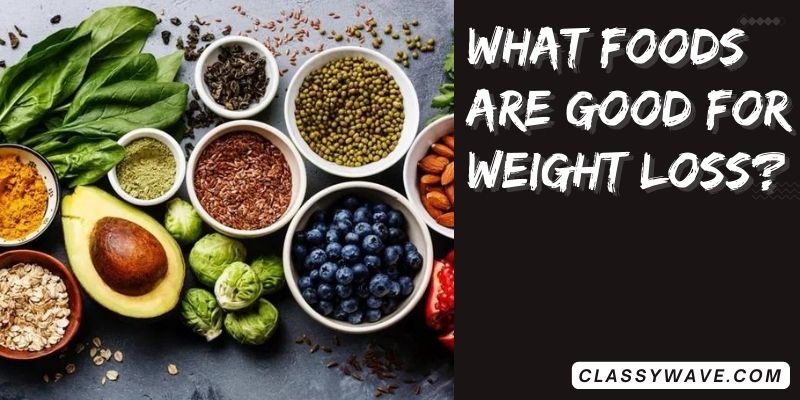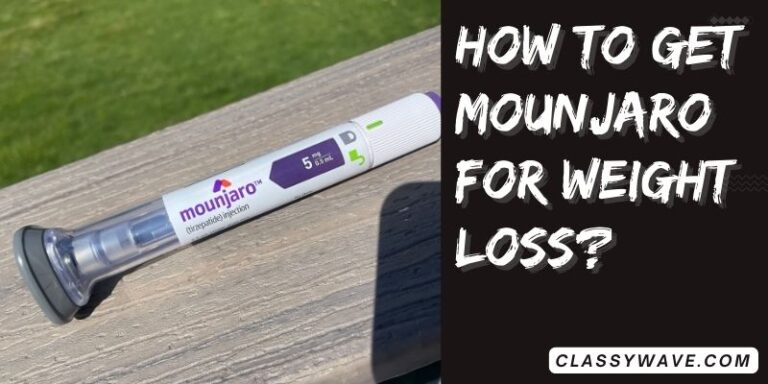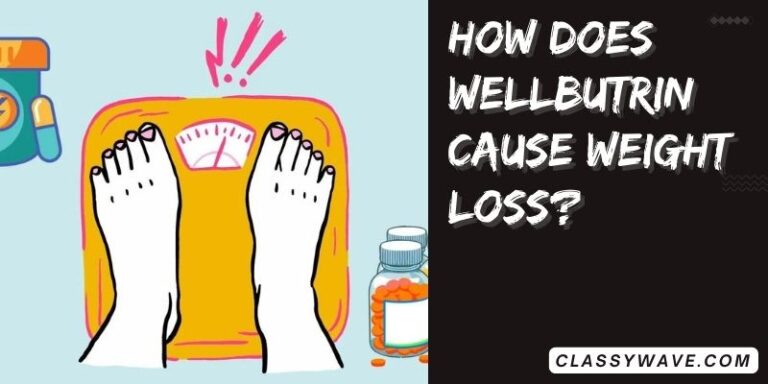what foods are good for weight loss? Revitalize Your Plate
Embarking on a weight loss journey involves more than just counting calories. It requires a holistic approach that considers various factors, from dietary choices to lifestyle habits. Explore these 15 essential headings, each delving into a key aspect of a well-rounded strategy for effective and sustainable weight loss.
High-Fiber Foods for Weight Loss
Incorporating high-fiber foods into your diet can aid weight loss by promoting feelings of fullness, and reducing overall calorie intake. Fiber-rich options include fruits, vegetables, and whole grains. These foods not only provide essential nutrients but also contribute to digestive health, making them an integral part of a balanced weight loss strategy.
Lean Protein Sources to Aid Weight Loss
Lean proteins, such as poultry, fish, tofu, and legumes, play a crucial role in weight loss by boosting metabolism and preserving lean muscle mass. These foods are satisfying, keeping you full longer and curbing cravings. Including lean proteins in your meals can help create a calorie deficit, facilitating effective weight loss while supporting overall health and fitness.
Healthy Fats that Support Weight Loss
Contrary to common belief, incorporating healthy fats like avocados, nuts, and olive oil into your diet can aid weight loss. These fats contribute to satiety, preventing overeating, and support nutrient absorption. Choosing these fats over saturated or trans fats promotes heart health while facilitating weight loss, creating a sustainable and enjoyable approach to a balanced diet.
Nutrient-Rich Vegetables for Weight Management
Nutrient-dense vegetables are essential for weight management, providing vital vitamins, minerals, and antioxidants with minimal calories. Incorporating a variety of colorful vegetables into your meals not only enhances nutritional intake but also supports weight loss by promoting a feeling of fullness. Vegetables like leafy greens, broccoli, and bell peppers are versatile and can be central to a well-rounded, weight-conscious eating plan.
Whole Grains for Sustained Energy and Weight Loss
Whole grains, such as brown rice, quinoa, and oats, offer sustained energy and contribute to weight loss by providing complex carbohydrates and fiber. These foods stabilize blood sugar levels, reducing cravings and promoting a feeling of fullness. Choosing whole grains over refined options supports a balanced diet and helps create a calorie deficit, essential for effective and sustainable weight loss.
Low-Calorie Snack Options for Effective Weight Control
Opting for low-calorie snacks is pivotal for effective weight control. Smart choices like fresh fruits, yogurt, or raw vegetables satisfy cravings without jeopardizing your calorie budget. These snacks contribute essential nutrients while helping maintain energy levels throughout the day. Mindful snacking is a valuable strategy, ensuring that you enjoy tasty treats while staying within your overall caloric intake for successful weight management.
Hydration and Weight Loss
Adequate hydration is crucial for weight loss, as water plays a key role in various bodily functions, including metabolism and digestion. Drinking water before meals can promote a sense of fullness, reducing calorie intake. Choosing water over sugary beverages also cuts unnecessary calories. Staying well-hydrated supports overall health and can be a simple yet powerful tool in any weight loss journey.
Portion Control
Mastering portion control is essential for successful weight management. Being mindful of serving sizes helps prevent overeating, allowing you to enjoy a variety of foods while maintaining a calorie deficit. Understanding proper portions empowers you to make informed choices, fostering a healthy relationship with food. Incorporating this habit into your daily routine is a fundamental step towards achieving and sustaining your weight loss goals.
Metabolism-Boosting Foods for Weight Loss
Certain foods can rev up your metabolism, aiding in weight loss. Incorporating metabolism-boosting options like green tea, spicy foods, and lean proteins can increase calorie burning. These foods also often provide additional health benefits, making them valuable additions to a balanced diet. Understanding the role of metabolism in weight loss empowers you to make food choices that support not only your weight goals but also your overall well-being.
Meal Planning Strategies for Effective Weight Loss
Strategic meal planning is a cornerstone of effective weight loss. Preparing balanced meals in advance helps control portion sizes and ensures you have nutritious options readily available. This proactive approach minimizes impulsive, less healthy food choices, making it easier to adhere to your weight loss plan. Incorporating variety and flavor into your meal planning enhances the sustainability and enjoyment of your dietary journey.
The Role of Physical Activity in Weight Management
Physical activity is a crucial component of successful weight management. Regular exercise not only burns calories but also helps build and preserve lean muscle mass. Finding activities you enjoy makes fitness a sustainable part of your lifestyle, supporting overall health and weight loss. Combining a balanced diet with an active lifestyle maximizes the effectiveness of your weight management efforts, creating a holistic approach to well-being.
Mindful Eating: A Powerful Tool for Weight Loss
Mindful eating involves paying attention to the sensory experience of eating and being aware of hunger and fullness cues. This practice fosters a healthier relationship with food, reducing overeating and emotional eating. By savoring each bite and eating with intention, you can create a more satisfying and mindful eating experience, contributing to successful weight loss and overall well-being.
Foods to Avoid for Successful Weight Loss
Identifying and avoiding certain foods is crucial for successful weight loss. Highly processed snacks, sugary beverages, and foods high in saturated fats can contribute to excess calories and hinder weight loss efforts. Being mindful of these choices empowers you to make healthier alternatives, creating a foundation for successful and sustainable weight loss while promoting overall health and well-being.
Healthy Cooking Techniques for Weight Management
Choosing healthy cooking techniques is vital for weight management. Grilling, baking, steaming, and sautéing are preferable to frying, as they minimize added fats and calories. Experimenting with herbs and spices enhances flavor without relying on excessive salt or sugar. Incorporating these cooking methods into your culinary routine ensures that you can enjoy delicious meals while supporting your weight management goals with nutrient-dense and balanced options.
Creating a Balanced Diet for Sustainable Weight Loss
Building a balanced diet is essential for sustainable weight loss. Combining lean proteins, whole grains, healthy fats, and a variety of fruits and vegetables ensures you receive essential nutrients while maintaining a calorie deficit. This approach not only supports weight loss but also promotes overall health and well-being. Creating a sustainable, enjoyable eating plan that aligns with your lifestyle is key to achieving and maintaining your weight loss goals over the long term.
Conclusion
In conclusion, successful weight loss is a multifaceted endeavor, encompassing mindful eating, strategic meal planning, and a commitment to balanced nutrition. Embracing the interplay of high-fiber foods, lean proteins, and metabolism-boosting options enhances the effectiveness of any weight loss plan. By adopting these principles and staying attuned to individual needs, achieving and maintaining a healthy weight becomes an empowering and sustainable journey, promoting not only physical well-being but also a positive relationship with food and lifestyle.
FAQs
Q: Can I lose weight without exercise?
A: Yes, weight loss is possible through a calorie deficit from dietary changes, but exercise enhances overall health and results.
Q: What are the best snacks for weight loss?
A: Opt for snacks like fresh fruits, yogurt, or raw veggies—low in calories and high in nutrients.
Q: Is it necessary to count calories for weight loss?
A: While not mandatory, calorie awareness aids weight management by ensuring a balance between intake and expenditure.
Q: How much water should I drink for weight loss?
A: Aim for at least 8 glasses daily. Drinking water before meals can help control appetite and support weight loss.
Q: Can I indulge in occasional treats and still lose weight?
A: Yes, moderation is key. Allow occasional treats while maintaining an overall balanced and calorie-conscious diet for success.







